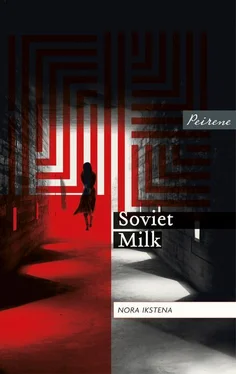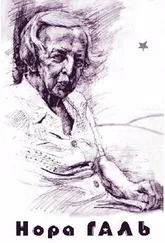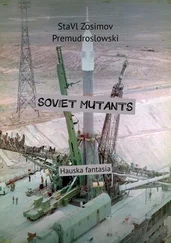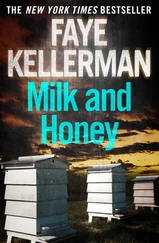My mother’s decision determined not only her life but also my father’s life and mine. Unwittingly, I blamed her for everything. And I remembered myself at my daughter’s age. When my mother used to weep in the kitchen every time she received the usual refusal to visit her brother in London, I didn’t feel sorry for her at all. But, unlike me, she was such a good and caring mother. She cherished me – just as my daughter now cares for and cherishes me.
During those empty days I used to go into my daughter’s room. There, in contrast to my chaos, everything was so touchingly neat. My mother’s and stepfather’s pictures in her handmade frames, propped against the old table lamp. A clay squirrel and a small clay dish, moulded with her own hands at a ceramics workshop. Her books and notebooks in neat piles; under the desk a bowl of water for the dog. My stepfather’s sharpened coloured pencils in a wooden box, one of my medical encyclopedia volumes, with pressed flowers and herbs filling its pages, on the windowsill snail shells, which she had found on the riverbank. The old wardrobe, with her underwear and warm tights in neat piles in the drawers and, at the back, a hanger with her school uniform.
The dog wagged its tail politely, but continued to wait for her. I closed the door and went back to my smoke-filled room.
*
My mother rarely entered my room. Yet every time I returned from my grandparents, her fragrance seemed to linger there. Maybe she had slept in my bed for a while? I unpacked the washed and ironed laundry and prepared for the next school week. My mother almost never asked me how her mother and stepfather were. Just acknowledged their greetings to her.
I didn’t tell my mother that her room in the flat had now been turned into mine. The books remaining from my mother’s library had been neatly organized on shelves. On the day I arrived, a vase of flowers stood on the desk alongside a plate of tasty morsels. My grandmother had certainly aired the room, because the cigarette smell that used to permeate the sofa and large armchair was barely discernible. Now the curtains smelled of soap powder. My bed was always made up and on it a clean stack of the clothes and underwear that I had left the previous time.
Two days a week and for several days at a time during holidays I lived in this paradise. Later my room acquired a white hamster whom I named Bambi. He hated his cage. He used to race around in it like the devil faced with a cross. My presence meant Bambi’s freedom. He was allowed to run around my room to his heart’s content, leaving a trail of tiny droppings behind him. He used to wait for me, like waiting for an ally. Once Bambi disappeared for a whole night, and no matter how we called and looked he didn’t respond or allow himself to be caught. In the morning our Polish neighbour from the floor below stood by our door holding Bambi. He had got into her toilet through the sewer pipe and was somewhat dazed and bruised. Holding him by the nape of the neck, my step-grandfather said, ‘Old chap, we all have to live in a cage. Get used to it.’
When I arrived the next time, my grandmother had provided a lady friend for Bambi: a tiny brown hamster whom I named Rozālija Vējaslota – Rosie Tumbleweed. We hoped she would calm him down and help begin a serene family life in his cage. Rosie became pregnant. Bambi mostly slept indolently, curled in a corner of the cage. Rosie busied herself gathering shavings to make a nest. Bambi showed no further interest in her. The former freedom fighter was unrecognizable.
And then, on my next visit, something horrendous happened. Rosie’s nest began to move and out tumbled the tiniest of tiny furless creatures, squeaking softly. On seeing them Bambi reared up on his back paws, shook himself and, grabbing the first newborn in his front paws like a carrot or a slice of potato, began to devour it, starting with its head. He was gobbling his own children, and with relish. My grandmother pulled Rosie’s nest out of the cage, along with the rest of the squeakers. During the night they all died and, after a few days, so did Rosie. Gradually Bambi returned to his old ways. He lived for his free time outside the cage.
I despised Bambi. I wished he had died. What had he lacked in his cage? Food, a warm lair, a wife and children: had he ruined it all solely because he wanted to run around in my room?
I resolved not to let Bambi out of his cage ever. Week after week he waited for me, hoping for my mercy. I arrived, he reared up with his paws pressed against the cage bars and as good as beckoned to me: ‘Please, please let me out.’ But my heart had hardened.
One of the Sundays when I was leaving Riga spelled the end of Bambi. My grandmother said, ‘He hasn’t eaten for almost a week.’ Curled up in a corner, he slept quietly. He’d lost his soft round tummy. When I entered the room, Bambi didn’t react. There was none of the usual pleading ritual. I bent over the cage and saw that Bambi was breathing very feebly. He had hidden his tiny snout in his nest, his white fur coat moved weakly up and down. I felt sorry for him and opened the cage door. ‘Bambi, you old monster. Come on out, let’s race. Bambi, come out, there’s freedom here.’ But Bambi continued to sleep and breathe almost unnoticeably. After a moment, as I was watching, he convulsed and stiffened, his snout and paws turned rigid. Paying no attention to my grandmother’s and step-grandfather’s objections, I wrapped Bambi in a cloth napkin, then in a sack and the sack in my school bag. ‘You don’t have anywhere to bury him here,’ I said, bid them goodbye and left for the station.
Outside the train window the stations trundled past one after the other. I wasn’t thinking of the passengers, whom otherwise I would have looked over carefully to see if there wasn’t some suspicious character among them. I didn’t think about the path through the old graveyard, where I usually drew a deep breath and tried to race without looking to either side. I didn’t even think about my grandparents, who were always on my mind when returning to my mother’s. I would often start crying at that thought, pressing my nose against the train window. Instead I thought about Bambi, who, wrapped in the napkin, was going to his place of rest in the garden by our house. Where to bury him – under the apple tree or the jasmine, or simply by the fence – for the crime of devouring his children? Without a grave mound. Maybe I was to blame for his death. Most likely he died of his yearning for freedom. But had I sentenced him unjustly? How can one eat one’s children and then die from yearning for freedom?
What usually seemed a long journey passed quickly this time. Our small station came along suddenly. It was nearly spring. In the evenings the light held for a long while. That meant I could walk in the graveyard unconcerned because it was still daylight. White anemones were blooming by the fence. Maybe Bambi should be buried right here in the graveyard? I wasn’t brave enough for that. Besides, I wanted to show Bambi to my mother. Although Bambi didn’t deserve flowers, I still picked a tiny bunch.
My mother was drinking coffee, smoking and reading in her room. Her window was open, overlooking the spring-like garden. She was happy to see me.
The dog sniffed at me. I unpacked my bag and took my bundle in to my mother’s room. I said, ‘Bambi died. Can we bury him in the garden?’
‘What happened?’ asked my mother.
‘He ate his children and afterwards died longing for freedom,’ I replied.
‘A brave hamster,’ my mother said.
‘You call that brave?’ I exclaimed, and all my suppressed tears – tears for leaving my grandparents, but also for losing Bambi, for our moments of freedom together – all my tears spilled out.
Читать дальше












